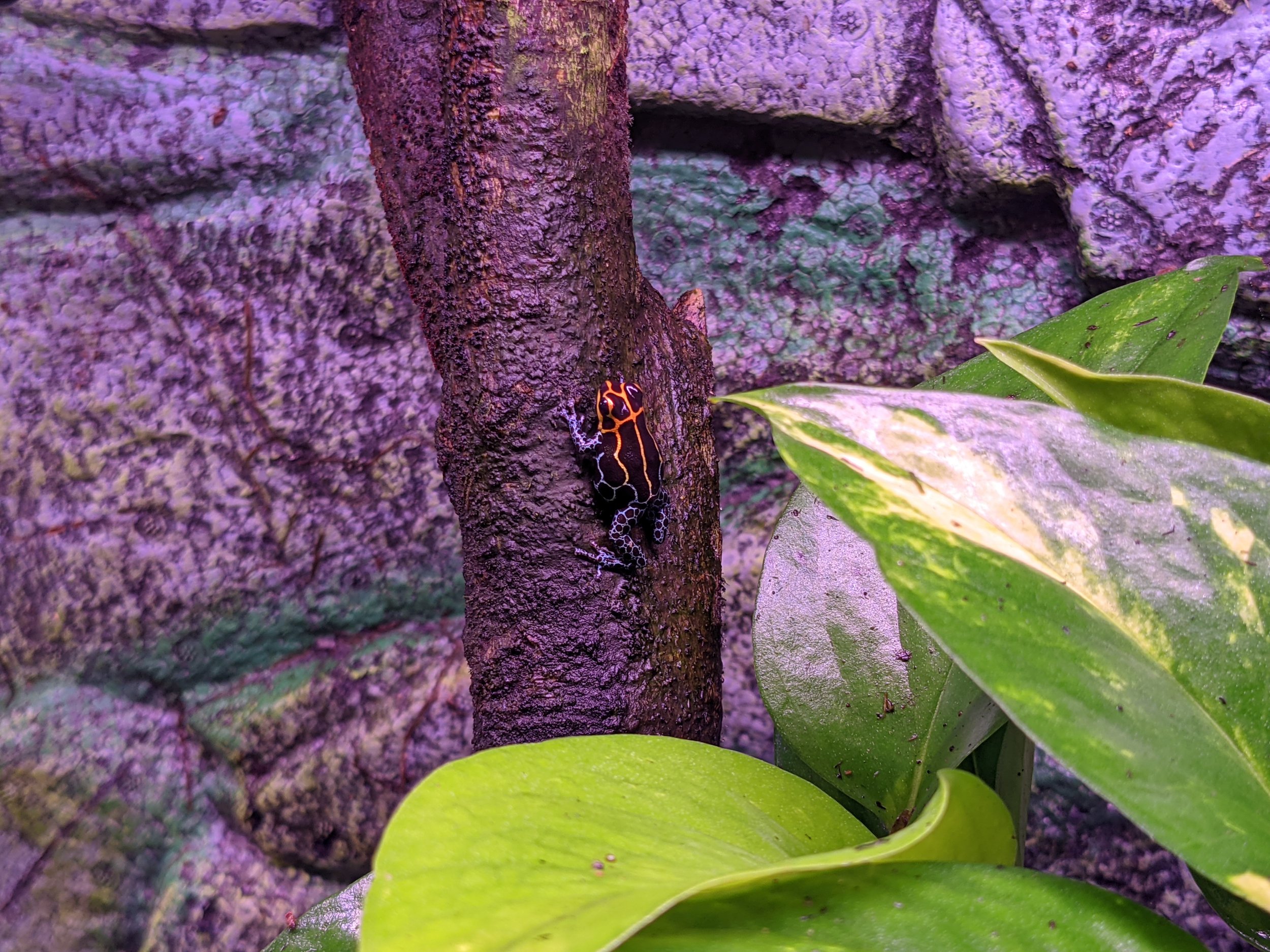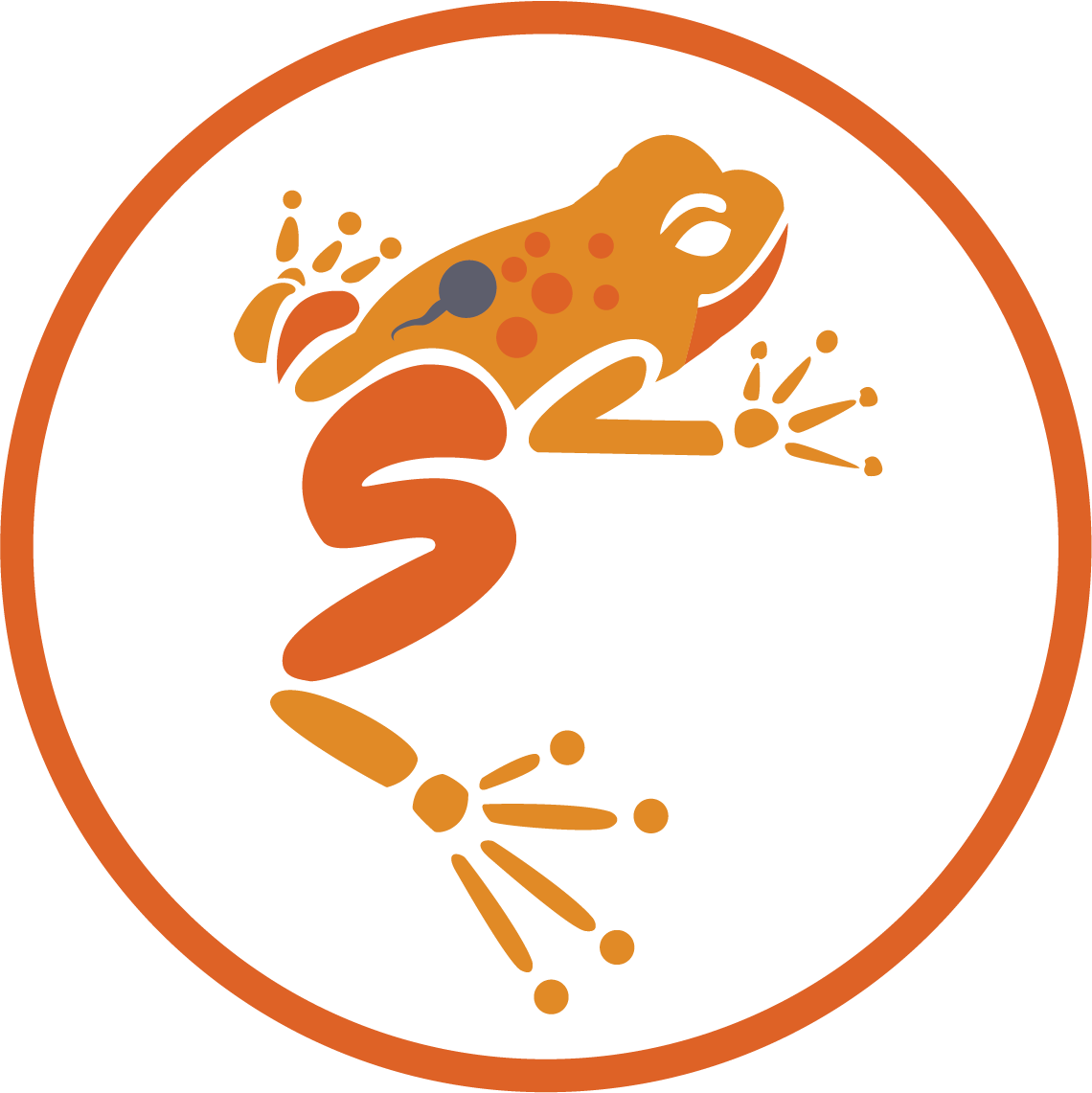
frequently asked frog questions
-
Great question! Poison frogs in the wild do have toxic alkaloids in their skin, which they sequester from the ants and other small insects they eat. In captivity, frogs switch over from their spicy rainforest diet to a diet of harmless fruit flies. In other words, the bright warning colors are a bluff!
-
There is no limit to what we can learn from studying the diversity of poison frogs! From their milieu of chemical defenses with promising therapeutic and insecticidal applications to their kaleidoscopic color variation, reflecting co-evolutionary tales of aposematism and mimicry. In the Fischer lab, we study poison frogs for their fascinating behaviors. Our top questions revolve around elaborate parental care, cannibalistic tadpoles, and communication.
-
Trick question! There is no biologically meaningful distinction between frogs and toads. They are both members of a massive group called Anurans (> 4,000 species). Colloquially, we tend to call dry-skinned, warty species ‘toads’ and sleek, smooth-skinned species ‘frogs,’ but in fact, they are all frogs!
-
Poison frogs (Family: Dendrobatidae) all hail from the Neotropics, which encompass Central and South America and the Caribbean. There are no poisonous frogs in Illinois. Our native Illinois frogs and toads (22 species) tend to rely on subtler forms of predator defense; primarily camouflage!
-
All of the frogs in our lab are ethically sourced from captive breeders or bred in our lab and have never spent a day in the wild! Removing poison frogs from their native habitat is illegal and is a major contributor to population declines.
-
Poison frogs are very popular pets, as amphibians go, due to their range of colors and charismatic behaviors. You can find poison frogs at many specialty pet stores; however, it takes a skilled and knowledgeable pet owner to keep them happy. Originally from South America, they require very warm and humid conditions in their tanks throughout the year, which must be artificially maintained. Also, many poison frogs are endangered in their native ranges due to habitat loss, pathogens, and collection for the illegal pet trade! While most poison frogs sold as pets (including ours) are ethically sourced from captive breeders, it is essential to do your homework when purchasing a poison frog to make sure they are not wild-caught.
